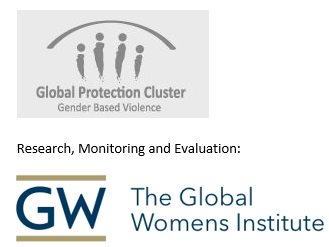- Emergencies often disrupt health care services. Lack of coordination, overcrowding, security constraints, lack of financial and human resources and competing priorities can further decrease available and accessible health services, especially for women and children (IASC, 2005). As such, the range of health services may be limited and it is important for the health sector to prioritize interventions according to the context in the field during each stage of an emergency. The primary role of health care providers in a conflict or post-conflict setting is to ensure all survivors have access to quality basic health services and to prevent and manage the health consequences of violence against women and girls (UNFPA, 2012).
- Many survivors of VAWG do not disclose the abuse due to fear or repercussions, social stigma, rejection from partners/families, and other reasons. Women who are further marginalized due to another aspect of their identity (for example, women with disabilities, elderly women, LBTI women, ethnic or religious minorities) are even less likely to disclose abuse due to increased risk of repercussions. However, survivors are much more likely to seek out support and services if health care is physically and geographically accessible, confidential, sensitive, and of good quality (IRC, 2012).
